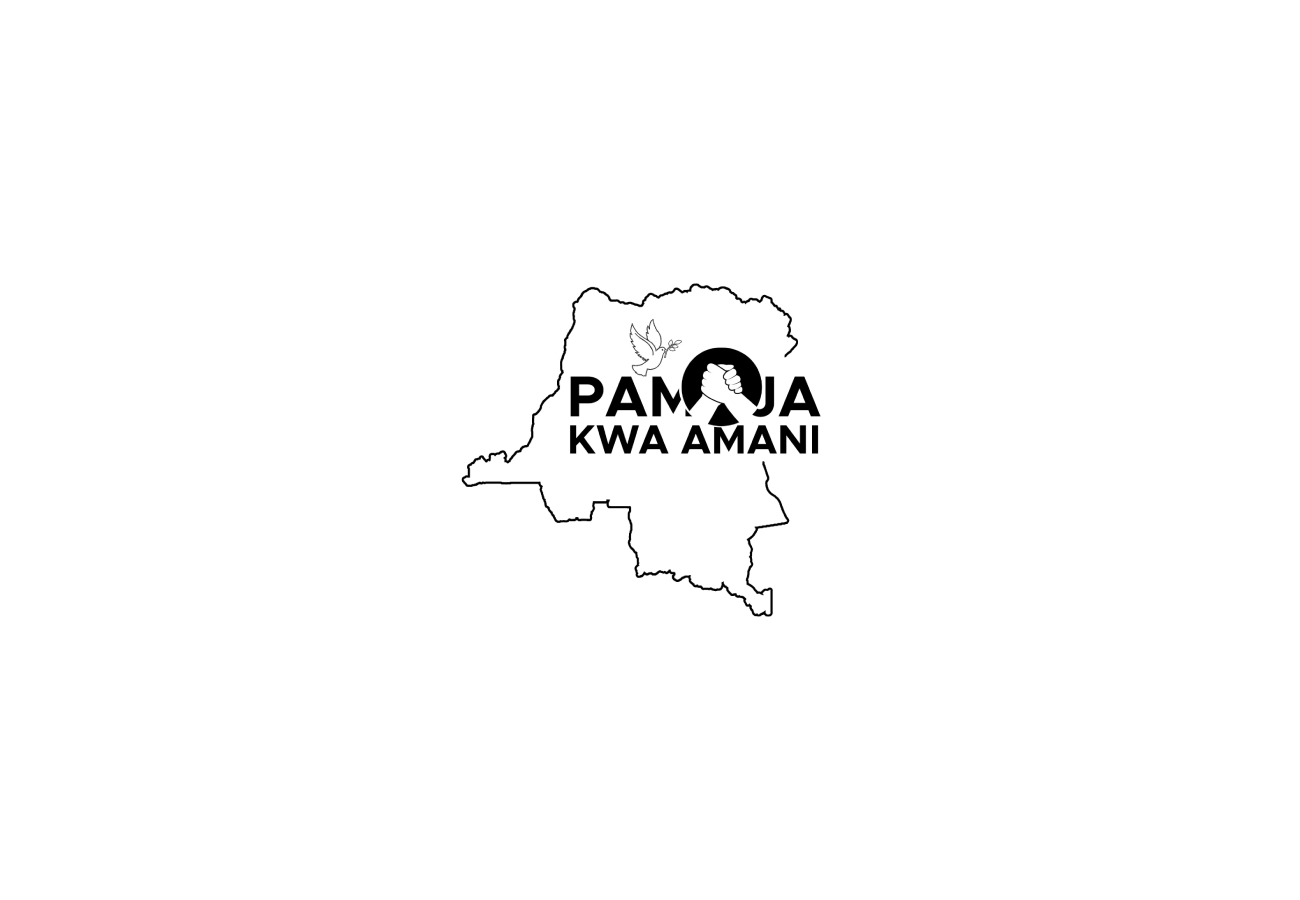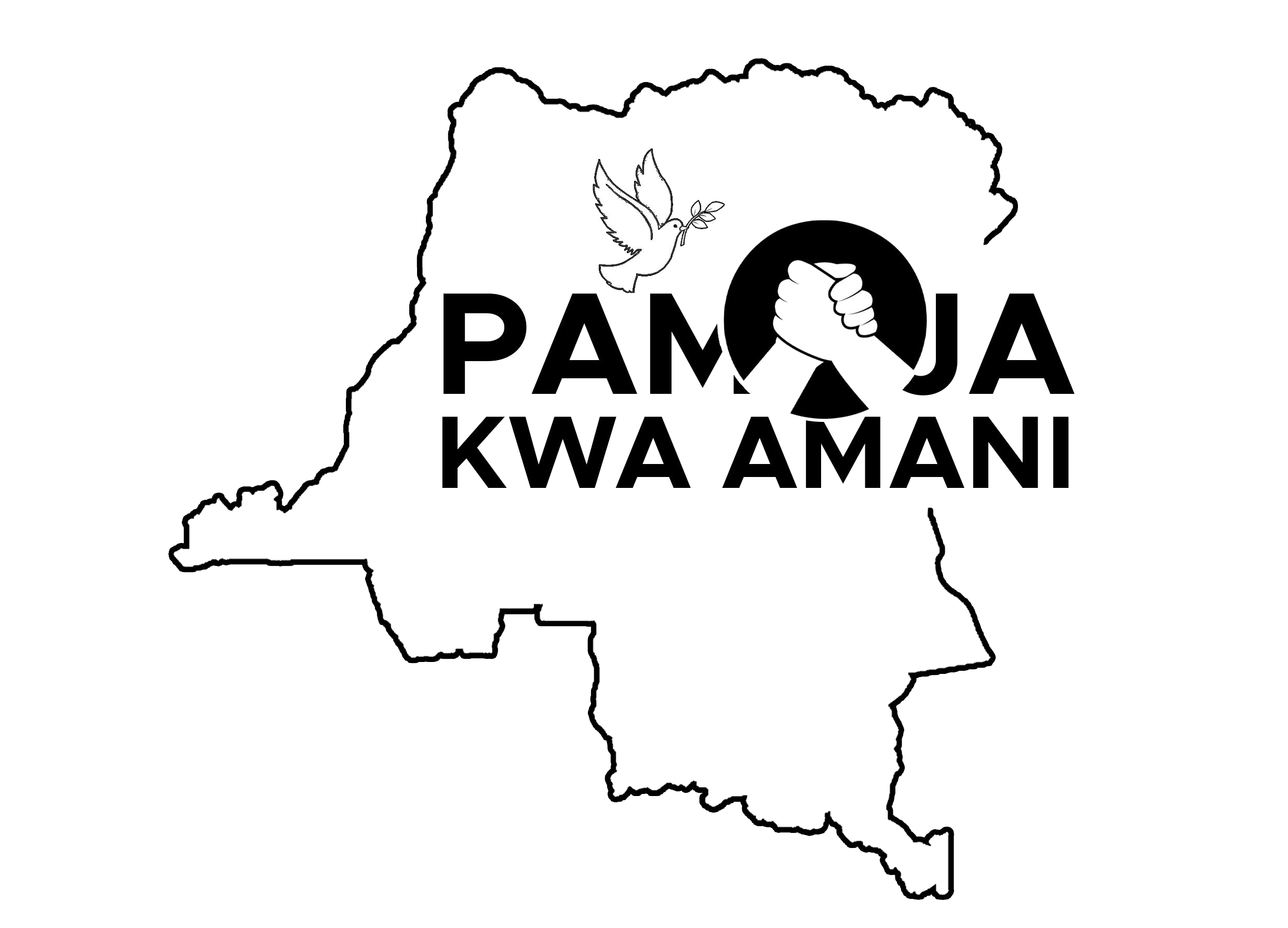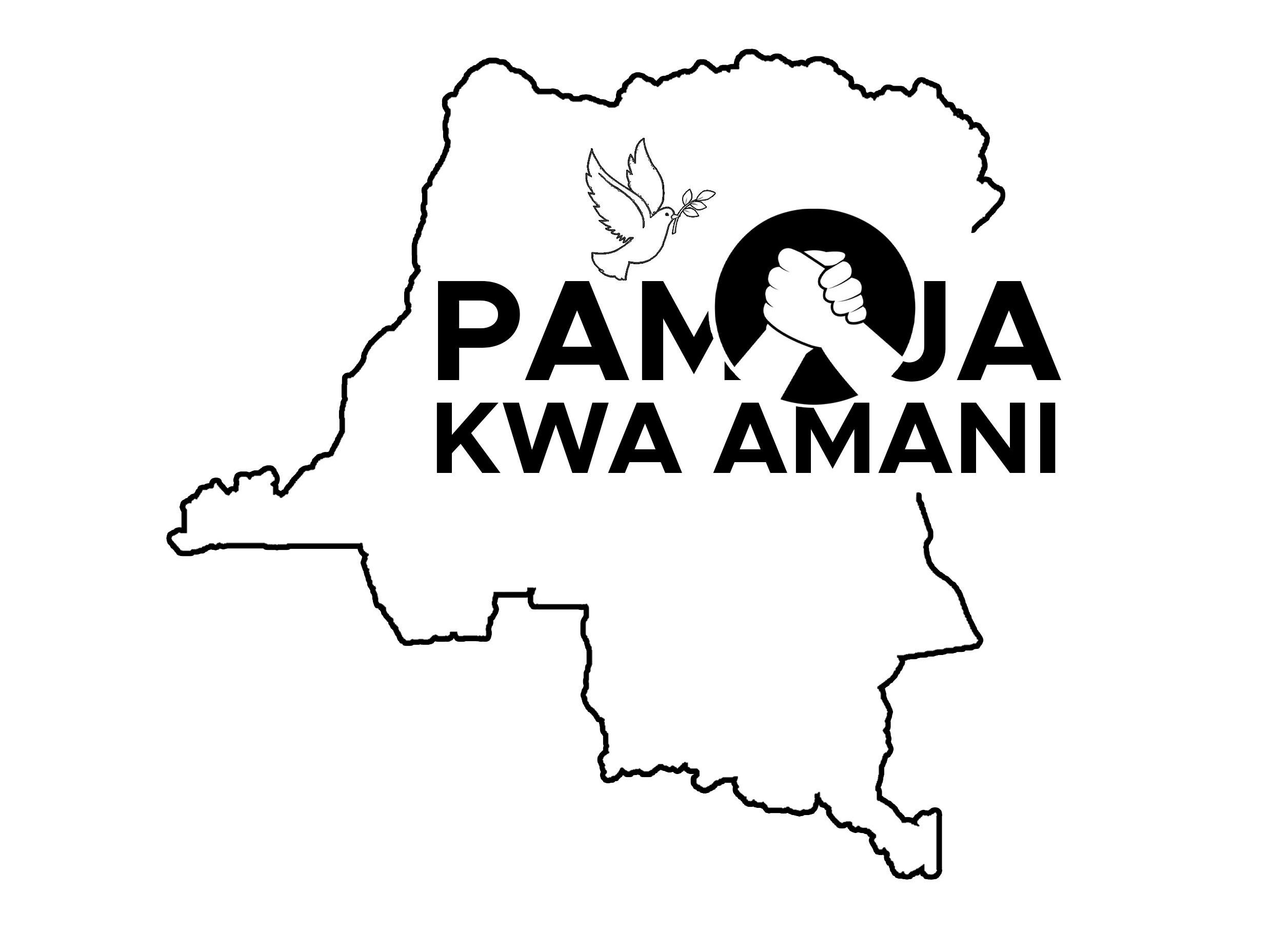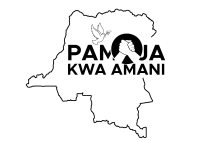Citizen Barometer of Peace, Security and Human Rights Issue 08, October 2025
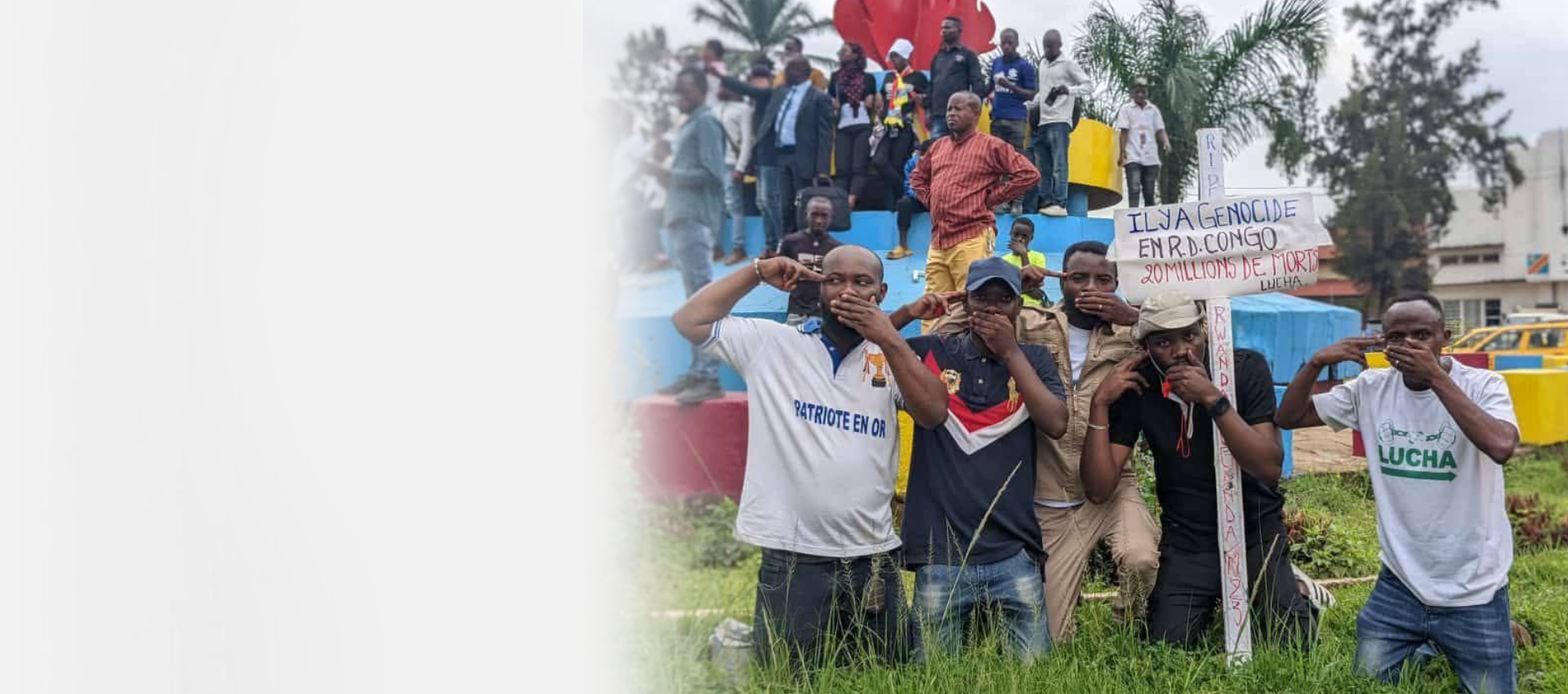
Citizen Barometer of Peace, Security and Human Rights
Issue 08, October 2025
Written and produced by the Pamoja kwa Amani Coalition
While the various peace processes continue to falter in Doha and Washington, the security, socio-economic, and humanitarian situation on the ground in eastern Democratic Republic of Congo is deteriorating daily and approaching catastrophe. The situation is critical, and action must be taken to save what can still be saved.
Clashes between the Armed Forces of the Democratic Republic of Congo (FARDC), their Wazalendo allies, and the Rwandan-backed AFC-M23 rebels have escalated on almost all front lines. Bombardments and ground attacks by the FARDC are increasing, and for several weeks now, they have been using CH-4 drones almost daily, and occasionally Sukhoi fighter jets, to bombard rebel positions and strategic sites.
At the same time, as always, it is the innocent population that suffers in indescribable ways. Tens of thousands of citizens are forced to leave their villages every day to flee the fighting and find themselves in inhumane conditions, exposed to the elements, and without humanitarian assistance. Children, the elderly, women, and people living with disabilities are the hardest hit by the consequences of this violence, highlighting the importance of the peace processes and the need to bring an end to the violence. Unfortunately, the opposite is occurring as the attacks have only accelerated.
The armed conflicts, as always, are motivated by the search for natural resources, with the belligerents seeking to gain control of mining sites in order to continue financing their nefarious enterprises at the cost of Congolese men and women’s lives.
In this issue, in addition to addressing incidents related to peace and human rights violations, we revisit one of the mining sites currently generating considerable controversy in South Kivu Province: the Lomera site in Luhihi, Kabare Territory. In each of the upcoming issues, Pamoja kwa Amani will return to the issue of the war in the East, closely linked to the control and exploitation of mineral resources.
In this extended issue, we also revisit other topics, including the Wazalendo phenomenon, human rights crimes and violations, the bombing of the Twangiza factory, the ongoing balkanization under the AFC-M23, and the legitimate disappointments of local communities following the stagnation of various peace processes. This issue concludes with an appeal from local communities in the East to U.S. President Donald Trump, urging him to intervene in resolving this protracted crisis.
In Luhihi, the AFC-M23 closed the Lomera mining site for reasons that are both unclear and worrying…
Lomera, renowned for its gold production, is currently at a standstill. The Pamoja kwa Amani Coalition (C–PKA) is particularly concerned about the current situation at this mining site located about thirty kilometers north of the city of Bukavu, the capital of South Kivu.
On August 30, 2025, the AFC-M23 authorities decided to suspend all activities at the Luhihi mining site. All occupants of the site, including artisanal miners and traders from Bukavu, Goma, Birava, Kavumu, Katana, and Idjwi, were ordered to leave without notice under armed duress from AFC-M23 rebels. More than 30,000 people dependent on the activities at this site are now left bewildered and destitute. Many families have seen their savings severely impacted by this decision, which only exacerbates the challenges facing the population during this period of war, when the economy is already paralyzed in the occupied areas, and there are no banking services or easy connections to other parts of the country.
Artisanal gold miners, traders, and residents of this area saw their savings suddenly collapse and life grind to a halt after a strict ban on accessing the site was imposed without any prior warning or preparation. Investments, production, debts, machinery, tools, and gold mines were abandoned against their owners’ wishes—a measure they consider suicidal, as they have since received no response from the rebel authorities, who had promised to reopen the site just days later.
The C-PKA is deeply concerned. The Lomera site had been the main viable option for economic activities to sustain the city of Bukavu and its surroundings through the circulation of cash, providing a livelihood for a large part of the population. It was considered the only refuge for thousands of unemployed people. The devastating consequences of this sudden shut down seems to not be understood by the perpetrator or those responsible. Since then, thousands of families have been living through a worsening disaster. Insecurity in the site and its surroundings continues to escalate. This calls into question how preventing and forbidding the already vulnerable population from making a living through their own daily struggles could possibly constitute liberation.
Since its closure, some twenty people have already been executed by armed men, sparking popular uprisings and leading to acts of vigilante justice. Human rights have been trampled and violated. People attempting to access the site to retrieve their belongings are treated inhumanely by AFC-M23 soldiers assigned to guard it. They arbitrarily arrest people, primarily young people, some of whom are even forcibly recruited into their armed movement; and if they refuse to comply, the AFC-M23 soldiers do not hesitate to shoot at point-blank range. Since the site’s closure, C-PKA has documented some twenty cases of young people being arrested and forcibly recruited into the rebellion. The summary execution of seven others has also been recorded.
Furthermore, several sources confirm the resurgence of insecurity in the Kabare Territory and the city of Bukavu, caused by some unsupervised youths who previously profited from mining operations at the Luhihi site. There are also reports of a significant increase in the number of young people and children living on the streets. These children, whose parents relied on mining activities, have been forced to abandon their schooling due to a lack of funds to pay school fees. Others have become completely neglected street children, posing a real threat to social stability and peace, both now and in the future.
In particular, women were hit hard by this surprising decision by the AFC-M23. Many of them had taken on debt to open businesses in the Luhihi mining area, including small restaurants and bistros, to provide for their families’ basic needs at a time when unemployment is rampant in the occupied areas and men have become dependent on the ingenuity and entrepreneurial spirit of their wives to sustain themselves. The fifty or so women interviewed by C-PKA all echoed this sentiment and said they did not understand the authorities’ decision. « These authorities who claim to have come to liberate the people, how can they sacrifice this entire population just so they can engage in mining operations on the site and line their own pockets? » exclaimed one of them, who had already opened a small bistro there.
Is the Lomera site currently sold or operated by M23?
Some sources suggest the rebels expropriated the site to generate substantial profits for their wartime economy. Others believe they are planning to sell the site to a foreign company that will soon begin operations, much to the dismay of a population already suffering and impoverished by a war they did not choose. Still others remain hopeful that the AFC-M23 authorities will voluntarily reopen the site.
Our sources on the ground report that visits to the site by potential investors, including Chinese and Rwandans, have been observed. They even indicate that there are operators accessing the site who work for the civilian and military leaders of the AFC-M23, whose heavily armed elements are responsible for its protection.
In any case, it is the population that continues to suffer and the new masters do not care at all about the suffering of the population, all that matters to them is their financial interest, by any means, in order to enrich themselves and to fund their war enterprise.
Recommendations from Pamoja kwa Amani:
• The authorities of the AFC-M23 should:
o Allow the resumption of activities at the Lomera site in order to alleviate, however slightly, the suffering and misery of the local population and all the workers who had already found a means of subsistence in Lomera;
o Take measures to strengthen security on the Lomera site to avoid further confrontations and fatal accidents such as landslides that have caused the deaths of several artisanal miners in the past.
• End consumers who purchase gold from Lomera should also be aware of the fact that this operation in no way complies with the OECD due diligence requirements.
It’s not only in Lomera/Luhihi that minerals are being exploited in areas currently under AFC-M23 control. The two Kivu provinces are teeming with numerous sites from which various minerals are extracted, such as gold, cassiterite, coltan, tourmaline, and many other types of precious stones. There are many such areas currently controlled by the rebellion. From Rubaya, Numbi, Lumbishi, Kalimbi (Kalehe-Nyabibwe), Walungu, Luhwinja (Twangiza), Kaniola, to Nzibira – the AFC-M23 continues its advance, paying particular attention to mining sites where it is concentrating significant forces. And on the ground, everything suggests that they don’t intend to stop there, hence its current offensives towards Shabunda and Mwenga, two territories very rich in strategic minerals.
What about the other sites under rebel control?
C-PKA plans to return to this topic in greater detail in upcoming issues of the Barometer. However, it is already clear that minerals remain one of the primary motivations behind all these wars. It is time for the international community to take the necessary steps to address this situation by strengthening control over global mineral supply and distribution chains. The minerals and resources of the Democratic Republic of Congo should no longer be the cause of the Congolese people’s suffering; on the contrary, they should contribute to their development and to the development of the entire Great Lakes sub-region.
Negotiations are stalled, but the war continues on the front lines…
While the Congolese government and M23-AFC recently signed the ceasefire monitoring and verification mechanism on October 14 in Doha, and the third meeting of the Joint Security Coordination Mechanism (JSCM) was held in Washington to advance the implementation of the Washington Peace Agreement, war on the ground continues.
A few hours after the signing of the ceasefire monitoring mechanism in Doha, the two sides clashed violently on several front lines, notably in the Territories of Walikale, Masisi, Lubero, in North Kivu; Walungu and Kabare in South Kivu.
In just the last two weeks of October, PKA counted 27 flagrant violations of the ceasefire by all belligerents. There are almost daily reports of clashes here and there in North Kivu as well as in South Kivu: Businga, Irhaga, Bwenda, Chiyanja in the Walungu Territory in South Kivu; Kalembe in the Masisi Territory in North Kivu, Nyarushamba (Masisi), Kashebere (Walikale), Ihula (Walikale) with massive displacements of populations towards Katobi, Kalonge, Mayenge and Kalembe and others into the bush, in Lubero and even in Nyiragongo near Goma where ambushes are regularly laid by Wazalendo and FDLR fighters against the positions and convoys of the AFC-M23 and vice versa.
Clashes are also reported almost daily in several villages in the Kabare Territory of South Kivu, particularly in and around Kahuzi-Biega National Park (PNKB), where Wazalendo factions are ambushing and attacking AFC-M23 positions. The PNKB, a world heritage site, is becoming a hub for armed groups, including the Wazalendo. The park is thus seriously threatened, as the presence of all these armed groups will not contribute to its preservation, but rather to its destruction. These armed groups, which have made the PNKB their territory, are engaging in destructive practices against this world heritage site, including cutting down trees for charcoal production, the uncontrolled and artisanal exploitation of natural resources that pollutes the environment, and the hunting of protected wild animal species, which are killed to serve as food for members of the armed groups.
We are calling for Kahuzi-Biega National Park (PNKB), as well as its twin in North Kivu, Virunga National Park to be demilitarized. These world heritage sites deserve protection for the good of all humanity – present and future generations.
The Twangiza Mining plant was bombed several times…
Since October 13, several bombings have targeted the Twangiza gold mining plant located in the Mwenga Territory of South Kivu. The FARDC are using CH-4 drones and fighter jets to disable the plant.
It is clear that the Government does not want the AFC-M23 rebellion to build up further financial resources through the continued operation of the Twangiza plant. This explains the scale of the strikes used, targeting and destroying the facilities, including power generation and supply infrastructure, fuel reserves, and other strategic machinery used for gold production at the plant.
For its part, the AFC-M23 denounces and condemns these attacks on Twangiza, describing them as war crimes, given that this factory is in no way a military target; on the contrary, it is an investment made to contribute to the development of the country.
It is important to note that the Twangiza site fell under the control of the AFC-M23 rebellion in May 2025. Since then, some workers have left the site, while others remain. The new masters, with a strong desire to access minerals, could not possibly relinquish this resource without maximizing their profits. Thus, they continued to operate the plant and extract several hundred kilograms of gold, representing a value of tens of millions of dollars.
Kinshasa, having learned of this, and wanting to weaken its adversary by cutting off all sources of funding, deemed it appropriate to bomb the factory outright, even if it meant dealing with the legal consequences with the owners of the Twangiza mine afterwards.
Insecurity is thriving and human rights are still being violated…
The security situation remains very precarious in South Kivu Province. Clashes, attacks, killings, the recovery of lifeless bodies, kidnappings, robberies, cases of mob justice, and looting are still being reported daily.
For South Kivu alone, for the month of October, the Pamoja Kwa Amani Coalition recorded the following figures, as shown in the table below:
Entities Killings Mob Justice Abduction / disappearance Robberies Corpses Attacks
Bukavu 15 3 76 5 13 20
Kabare 18 8 34 2 16 11
Kalehe 10 10 19 1 6 9
Idjwi 2 0 1 2 0 1
Mwenga 10 3 15 13 5 8
Shabunda 1 0 3 4 6 6
Uvira 11 2 17 7 3 15
Uvira city 5 0 6 2 2 13
Kamituga 10 1 4 5 4 7
Fizi 13 3 20 0 5 12
Total 95 30 195 41 60 111
In light of this picture, there is a total of 95 people killed and 60 dead bodies identified, making a total of 155 people who have lost their lives as a result of insecurity and human rights violations, including those in the South Kivu Province in October.
The Kabare territory has the highest number of cases, with 34 incidents, including 18 killings and 16 cases of recovered bodies. These are largely due to the resurgence of activity by the Wazalendo armed groups and the recurring clashes between these factions and M23 troops. In Kabare alone, during the last week of October, the Mumosho area saw five deaths, including the murder of Reverend Pastor Baduda Bongwa Zozo and his wife in their home in Mumosho town on the evening of October 24, 2025, at 7pm, while Mumosho was under the control of the AFC-M23. Following attacks by the Wazalendo, M23 elements often carry out reprisal operations in which young people are arrested, tortured, killed at point-blank range, and others forcibly recruited into their fighting units.
Kabare is followed by the city of Bukavu, which has seen a slight improvement with 19 cases, including 11 killings and 8 bodies recovered. The Fizi territory comes next with 18 cases, including 13 killings and 5 bodies recovered. For Fizi, Uvira, and Mwenga, the statistics are certainly higher, particularly in the highlands and midlands where clashes are almost daily occurrences and communities live in constant fear. These areas are difficult to access even by telephone. The number of cases of mob justice, especially in the city of Bukavu, is steadily decreasing following awareness campaigns conducted by C-PKA and its member organizations.
C-PKA notes that respect for human rights continues to be violated by all belligerents, both on the side of the FARDC and their Wazalendo allies and on the side of the AFC-M23 and its supporter, Rwanda. It should be noted that the AFC-M23 regularly conducts cordon and search operations in several volatile neighborhoods of Goma and Bukavu to hunt down criminals and potential members of Wazalendo groups. Following these operations, numerous young people are arrested and taken to detention centers run by the movement. Some are released after interrogation and upon payment of ransoms, while others are simply sent to their military training centers.
The Wazalendo, the other war that risks being even more devastating than the current one…
Pamoja kwa Amani repeatedly emphasized the dangers and risks posed by the proliferation of so-called Wazalendo groups throughout the country, particularly in North and South Kivu. Before the resumption of the war by the M23 rebels in November 2021, the DRC was making good progress in eradicating national armed groups, notably through the National Disarmament and Demobilization Program (PDRSS) and the Nairobi process, mediated by former Kenyan President Uhuru Kenyatta. The Nairobi process was intended to dismantle all national armed groups and reintegrate their members into civilian life.
But with the resumption of the war by the M23, a general mobilization decreed by the Congolese government called on all local self-defense forces to join the FARDC in order to fight the rebels and their Rwandan support, the situation has become even more worrying.
Today, the so-called Wazalendo phenomenon risks plunging eastern DRC into another spiral of violence as chaotic as the one we are currently experiencing. Throughout the east, in North Kivu, South Kivu, and Maniema, there is a worrying proliferation of armed local groups claiming to be Wazalendo. The total disorder reigning in this area is more than alarming and risks generating another complex security crisis. Even the Congolese government, who supports and arms these Wazalendo, is currently unable to say precisely how many there are, how they are organized, or what chain of command they fall under. These days, all it takes is a small group of 10 to 20 people and a few firearms to claim the title of Muzalendo and illegally, illegitimately, or even irregularly acquire officer titles, including that of general. Currently, there are more than 65 self-proclaimed generals within various Wazalendo factions.
Even more worrying, many young children are finding themselves within various factions of Wazalendo, in flagrant violation of international legal instruments that protect children by prohibiting the recruitment of children into armed groups. Pamoja kwa Amani is therefore raising the alarm about this situation and calling on stakeholders and the international community to take strong measures against all armed groups that recruit children into their ranks.
C-PKA also deplores the commission of numerous crimes and other serious human rights violations by various members of different Wazalendo factions in the areas where they operate. Torture, arbitrary arrests, public flogging, particularly of women, murders, enforced disappearances, and sexual and gender-based violence are among the serious violations currently perpetrated by several Wazalendo factions.
The term Wazalendo has become a catch-all term where even hardened criminals can band together, declare themselves Wazalendo, and engage in criminal activities, including extortion, looting, rape, murder, and kidnapping. The most appalling case occurred on October 19th in Katana, Kabare territory, where individuals identifying as Wazalendo stormed a local church, abducted a well-known resident, Mr. Antoine Karumba, took him into the bush, tortured him, and brutally murdered him at the hands of his assailants, including minors, according to images and videos filmed and circulated by these same Wazalendo. This is a clear case of a war crime – his family was not even allowed access to his body for a proper burial. This case has brought this nebulous Wazalendo network back into the spotlight.
Pamoja kwa Amani is once again raising the alarm to stop this uncontrolled distribution of weapons to unofficial and unstructured groups.
The Congolese government must assume its responsibilities by fulfilling all its sovereign obligations and take urgent measures to stem this hemorrhage by properly organizing the Armed Reserve for the Defense of the Homeland in accordance with the laws of the Republic. Investigations must be conducted independently to establish responsibility for all crimes currently being committed by uncivil individuals claiming to be Wazalendo.
Urgent appeal to US President Donald Trump
In this escalation of violence, Pamoja kwa Amani observes that the more agreements the warring parties sign, the more they violate them. No agreement has yet been implemented on the ground. The warring parties appear to be mocking everyone, even the Qatari and American mediators who are working tirelessly to resolve this crisis and seek peace.
Therefore, Pamoja kwa Amani recommends that the administration of President Donald Trump step up its efforts by taking binding measures to force the warring parties to respect their commitments to the agreements and to immediately end this war, which the Congolese population is very tired of and whose human cost is beyond comprehension.
Without strong pressure, and knowing the degree of extremism that characterizes the various belligerents, President Trump and the Qatari authorities will be misled. Only concerted pressure and sanctions can shift the situation. Without them, these negotiations will amount to a waste of time for the American and Qatari authorities, in whom the suffering people of Kivu had already placed all their trust for a return to peace.
An urgent appeal is thus being made to President Donald Trump, the « President of Peace, » to become personally and decisively involved in the crisis that has plagued the Great Lakes sub-region and eastern DRC for over three decades. He should make it a personal matter, as he is currently doing with the Gaza issue in the Middle East. The Congolese people will be deeply grateful to him, generation after generation.
The « President of Peace » is currently the only one who can end these decades of war and bring peace to eastern DRC and the entire Great Lakes sub-region. For local communities in eastern DRC, without direct pressure from the United States and its President, peace will remain an illusion.
Pamoja kwa Amani wishes to point out that the failure to respect the peace agreements and the ceasefire is the logical consequence of the absence of binding measures and the weakness of international justice which struggles to sanction warlords.
The specters of balkanization still haunt eastern DRC
While the various peace processes are stalled, clashes on the ground resume on all front lines. In the areas controlled by the AFC-M23, this movement continues without interruption with its policy of administrative and political empowerment of the space it controls in North Kivu and South Kivu.
The introduction of a visa requirement by the AFC-M23 in the areas under its control represents another step in the perilous march toward the balkanization of the country. With this decision, the AFC-M23 is now imposing a mandatory visa for any foreigner wishing to access the territories it occupies in eastern DRC. According to Bertrand Bisimwa, deputy coordinator of the movement, only visas issued by the AFC-M23 will now be recognized, rejecting those issued by Kinshasa after February 2025.
It should be noted that the AFC-M23 already controls the administrative and political management of large swathes of land in the two Kivu provinces in eastern DRC. They have appointed political and administrative authorities there, including provincial governors, mayors, territorial administrators, and municipal officials. These administrative authorities wield all the powers, including the power to issue civil status documents (marriage, birth, death, nationality, immigration documents, and others). AFC-M23 maintains itself and continues its war through the illegal exploitation of minerals, the collection of taxes at gunpoint, and the control of border posts, particularly with Rwanda and Uganda.
News from Pamoja kwa Amani
The International Prize for Human Rights « Daniele Po », XVIIth Edition, was awarded to Ms. Marie Rose Néné Bintu Iragi Mudekereza in Bologna, Italy, on October 18, 2025.
This prize represents tangible recognition of her exceptional commitment to the defense of fundamental rights and the promotion of peace. The Daniele Po International Prize, created in 2007, rewards each year a woman or an organization that distinguishes itself, at the national or international level, by the unconditional defense of human rights and the promotion of values essential to a civilization of peace. Pamoja kwa Amani expresses its warmest congratulations to the Laureate who is one of the members of our Coalition and who currently serves as Deputy Moderator of Pamoja kwa Amani.
Pamoja kwa Amani welcomes the appointment by the President of the Human Rights Council, Ambassador Jürg Lauber of three members of the Independent Commission of Inquiry into the Human Rights Situation in North Kivu and South Kivu.
These commissioners are Arnauld Akodjenou (Benin), Maxine Marcus (Germany/United States) and Clément Nyaletsossi Voule (Togo).
Established by resolution S-37/1 on February 7, 2025, the Commission is mandated to investigate alleged violations of human rights and international humanitarian law, including sexual violence and violence against internally displaced persons. It must also identify the people and entities responsible so that they can be held accountable for their actions.
The first site visit is scheduled for no later than January 2026. A full report will be presented to the UN Human Rights Council at its sixty-fourth session in 2027.
Pamoja Kwa Amani, whose fight has always been for justice for victims by ending impunity in order to discourage any recurrence of crimes, believes that this step taken is very important and necessary in this time of war where serious war crimes and human rights violations are committed by all belligerents.
Pamoja kwa Amani, whose member organizations enjoy broad legitimacy on the ground, is committed to collaborating very closely with the commission by making available to it the full range of original and well-documented information at its disposal.
No peace is possible without justice.
No solution to the current crisis is possible without justice and the inclusion of local communities.
Pamoja kwa Amani is launching an appeal for support to continue its work and achieve its objectives. Organizations interested in its work and innovative approach can contact the Coalition by email: [email protected] .
Pamoja Tujenge Amani!
Together, let’s build peace
us build peace together .
Press Contact:
www.pamojakwaamani.org / [email protected]
+243998893542 / +243 859170689 / +243970887677 / +243824220495
